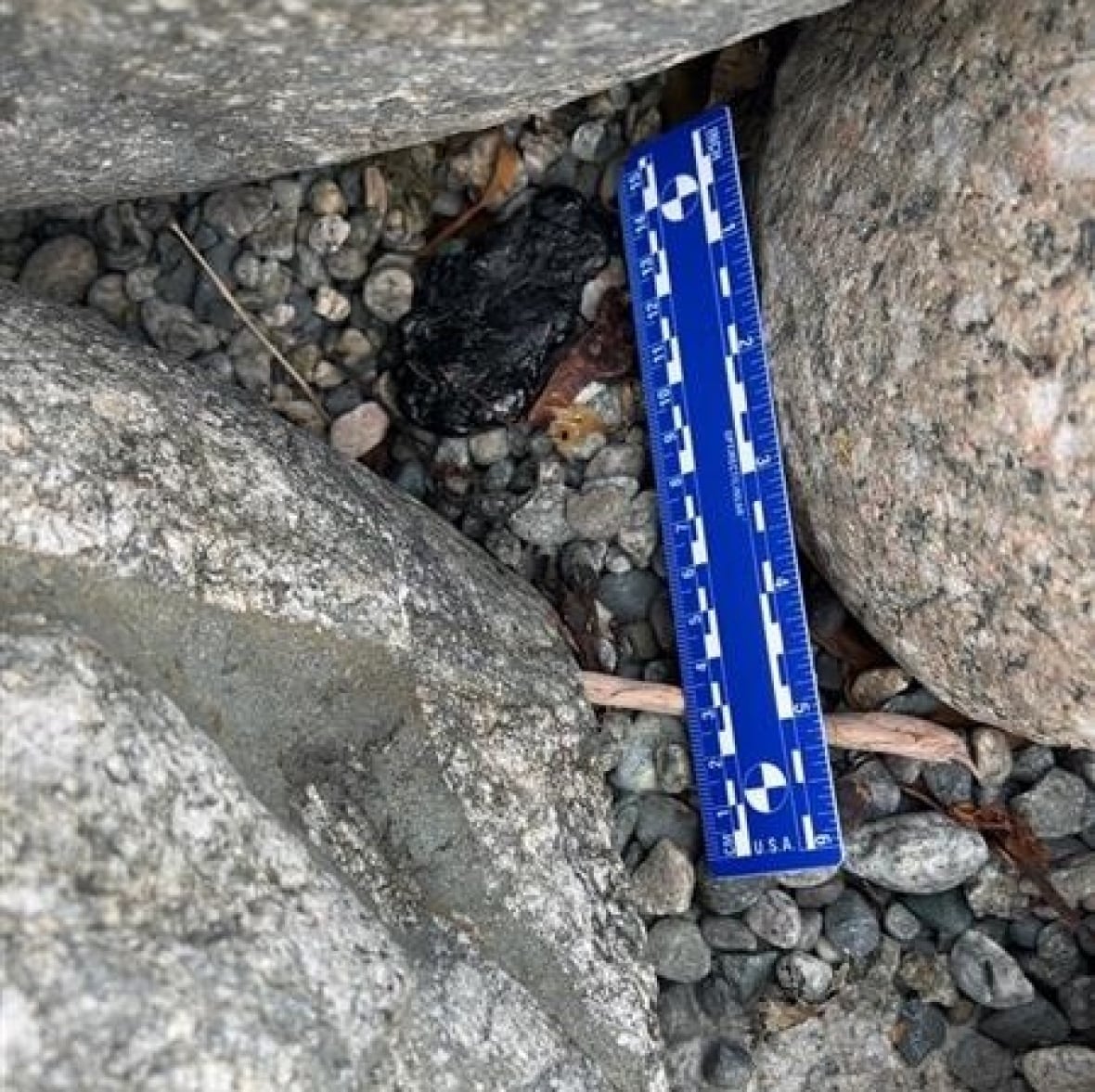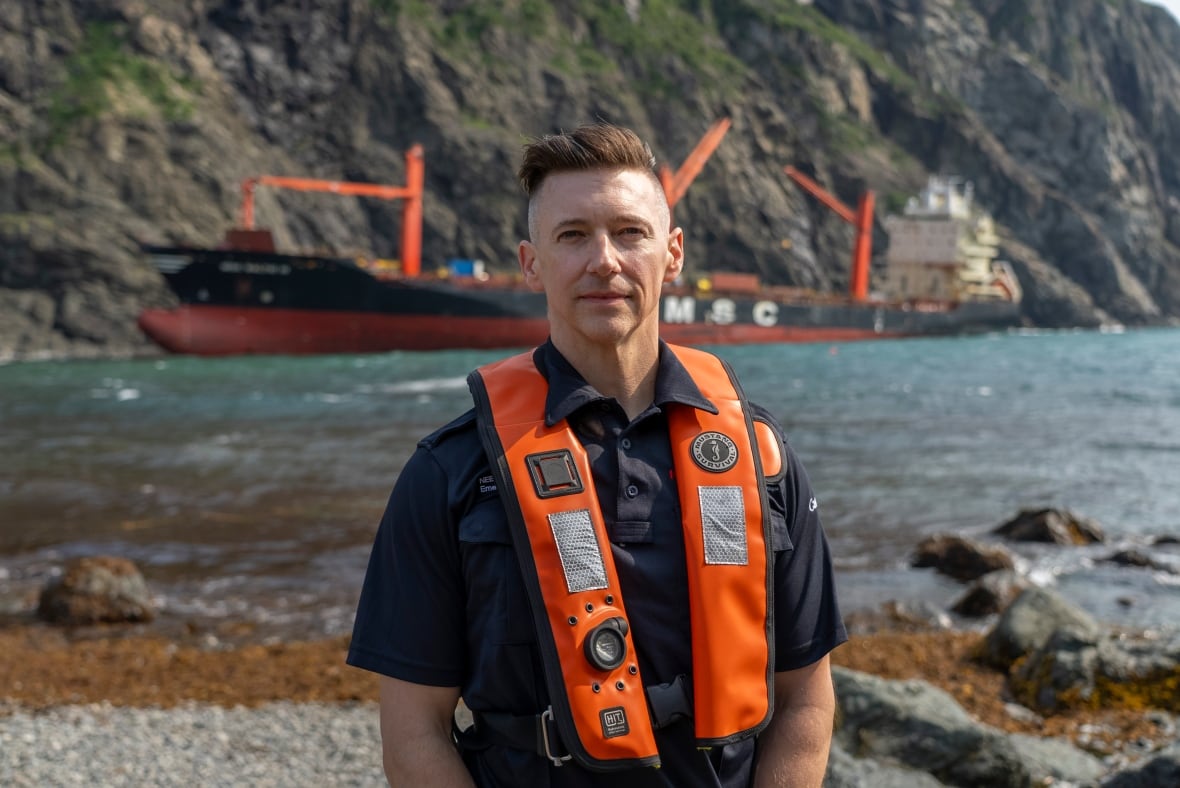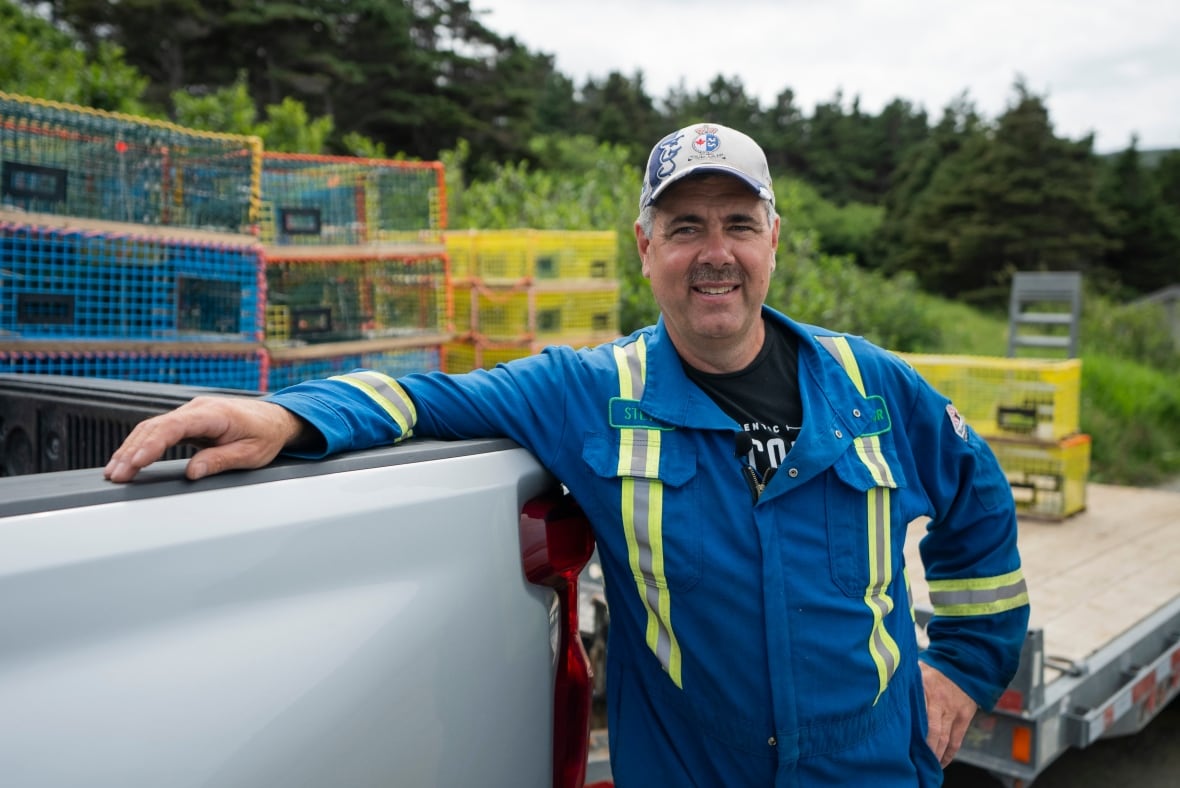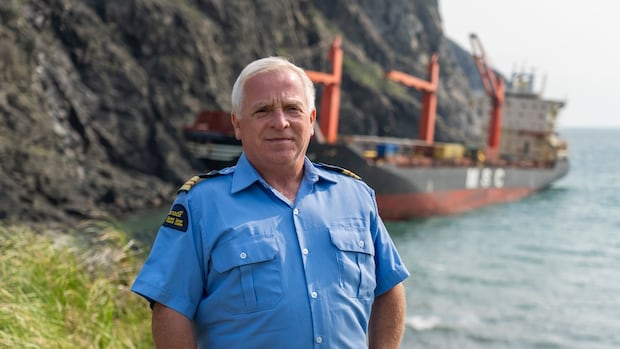When the MSC Baltic III ran aground on the shores of Cedar Cove on Newfoundland’s west coast in February, the first concern was getting the 20 crew members off safely.
The ship is massive, at 207 metres long and 30 metres wide, and the coast guard in the area immediately went into rescue mode. But an operation this size was bigger than anything they’ve seen in decades.
“It’s not something we deal with every single day. We’ve dealt a lot with, you know, smaller vessels — 65-foot vessels are easier, smaller quantities. When this vessel came in I said, ‘Oh my God, this is huge,'” said Bruce English, a senior response officer who’s been with the Canadian Coast Guard for the last 30 years.
“This is the biggest incident that I’ve been involved with.”
The cargo ship ran aground after it lost power on board. With the crew unable to drop an anchor amid the heavy winter winds, the vessel luckily drifted into a cove with a relatively accessible point of a beach, which made getting to it easier for rescue and cleanup crews.
An urgent operation is underway to contain heavy oil inside the MSC Baltic III, grounded off the coast of Newfoundland and being battered by the North Atlantic. For The National, CBC’s Peter Cowan gets an exclusive look at the cargo shipwreck cleanup, one of the largest Canada has faced in decades.
“It’s simply amazing that that vessel came into this location,” says English. “The whole length of the shoreline here is beautiful, but it’s quite rugged and dangerous and it would have been a different ending if it ended up somewhere else.”
The ship was loaded with 472 containers, with everything from textiles to food to whiskey, but the bigger concern was making sure the 1,600 tonnes of fuel oil on board was removed safely without leaking into the ocean.
Cleanup efforts
It’s been six months, and the process of removing the fuels is complicated and time consuming. So far, the bulk of it has been released and pumped ashore, work that’s being done by the ship’s owner, the Mediterranean Shipping Company. Environment and Climate Change Canada is overseeing that it’s done properly. “And there’s a lot more work to do,” said English.

The oil needs to be heated up with steam to make it less thick, a process that could take up to seven days. Then it has to be pumped into different tanks on the ship’s deck, pumped into barges, then transferred onto another ship before being carried away.
The dangers associated with the process are potentially extreme for the environment. And already, tarballs — small fragments of fuel from the ship — have been detected on the beach, a reality that’s being closely monitored for the potential harm they can cause.
“Whenever you have a hydrocarbon within the marine environment, there’s always a problem or a potential for impact certainly on an ecosystem level with anywhere from the small … insects that birds or fish might eat all the way up the food chain,” said Mark Dalton, senior environmental emergencies officer with ECCC.
The chemistry of the tarballs need to be matched with specific fuel tanks still on the ship so that the cleanup crew can determine which tanks might be leaking.
Dalton says they need to understand the chemistry of the tarballs so they know ” what that oil might look like if there was a catastrophic release of the same source,” says Dalton.

Concerned communities
Among those most concerned are the hundreds of families who rely on fishing as their main source of income in these waters.
Jeff Childs fishes in the area and was one of the first on scene when the MSC Baltic III ran aground.
“This is our lobster ground right here,” says Childs. “What you see, this is all lobster ground. If this oil don’t get out, you know, before hurricane season, there’s potential that it could break up and we could still have a spill.”

Childs is referring to the harsh conditions on the water that are just around the corner with hurricane season starting in the fall, a deadline that has put added pressure on the cleanup.
The coast guard agrees. “Make no mistake about it, if it’s on this type of shoreline, it will be extremely difficult to do, especially through winter months. Even gaining access to the vessel already has been down to 50 per cent of the time,” said English.
The cleanup operation has removed ninety percent of fuel from the ship already, but the 10 percent that remains still represents a significant risk if not handled properly.
Representatives of the area’s Qalipu First Nation are watching the cleanup closely and have advocated to be a part of the operation, saying an oil spill in these waters would be catastrophic.

“It would absolutely be devastating,” said Chief Jennifer Brake. “All across Newfoundland, we have people that have counted on our waters to feed us and sustain us, and we don’t want that to change.”
In the meantime, interest in the shipwreck has brought tourists to the cove to take pictures and see the ship up close. And town officials say restaurants and hotels in the area have been busier than in previous summers.
With the cleanup expected to still take months to complete, area residents are hoping it continues to go smoothly until the ship is either floated off or broken into pieces and disposed of in Cedar Cove.







